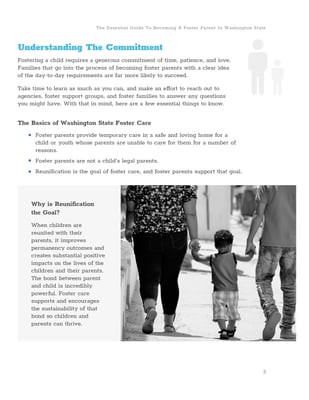“Each year, about 1 in 4 young people in Washington State face a housing crisis within a year of leaving foster care, criminal justice facilities, or behavioral health institutions.” — The Olympian, How can Washington better help young people who are homeless? Listen to their stories
Children leave foster care for a variety of reasons. Some age out of the system when they turn 18, others run away from foster or group homes where they’ve suffered abuse or neglect or just haven’t felt like someone loved them, and some end up in criminal justice facilities.
All too often, foster youth between the ages of 12 and 24 who have experienced significant trauma find themselves without a place to call home or connections that they can rely on for support. In Washington State, there is a critical need for services that help traumatized youth transition into stable housing so they can begin to build successful lives.
 The Problem: A Lack Of Services
The Problem: A Lack Of Services
“Youth exiting foster care don’t have enough resources or help in transitioning into the world. The DCYF has made progress in developing additional resources, but these services remain extremely under-funded.” — Jill May, Executive Director at Washington Association for Children & Families
Imagine a typical high school graduate. Maybe they’ve got plans to go to college or to start an apprenticeship program. Either way, they’ve likely spent the last few years preparing for their new life as an independent adult. Most importantly, they likely don’t have the emotional weight of past traumas.
Compare this picture to a teen who has aged out of foster care. They might not have any family to call or ever had the chance to save money for a bank account. They might not even know how to pay a bill, mail a letter, or apply for a job. And, past traumas make it hard for them to cope with new situations, forge new relationships, or simply trust people.
That’s why Washington State is now considering adding more funding to provide better services for foster youth. So far, it hasn’t been enough for foster youth because they need more support.
 Washington State Foster Youth Need More Funding
Washington State Foster Youth Need More Funding
“Youth that need services are often on waiting lists or their social workers are trying to serve everyone they can, which is not sustainable to provide enough of the right support,” says Jill May. “The child welfare system fails these youth. We need to be investing in their future, so they can be successful.”
May says that such changes would lead to less homelessness, sex trafficking, incarceration, and mental health challenges. As she says, “These youth deserve better, it is a shame the lack of support we provide to them.”
 How Foster Parents Can Help
How Foster Parents Can Help
Foster youth aren’t so different from their peers. They’re no less capable or intelligent or willing to tackle the responsibilities of being an adult. They simply don’t have a reliable place to call home, and they’re battling with a lifetime of potential trauma that makes it nearly impossible to focus on navigating a complex and inadequate system of services.
Foster parents can help by becoming licensed and ensuring that one more youth has a place to call home, whether it’s just for a few weeks, a few months, or a few years. Learn how you can give them a chance to thrive as adults by reading our free guide to becoming a foster parent in WA.








